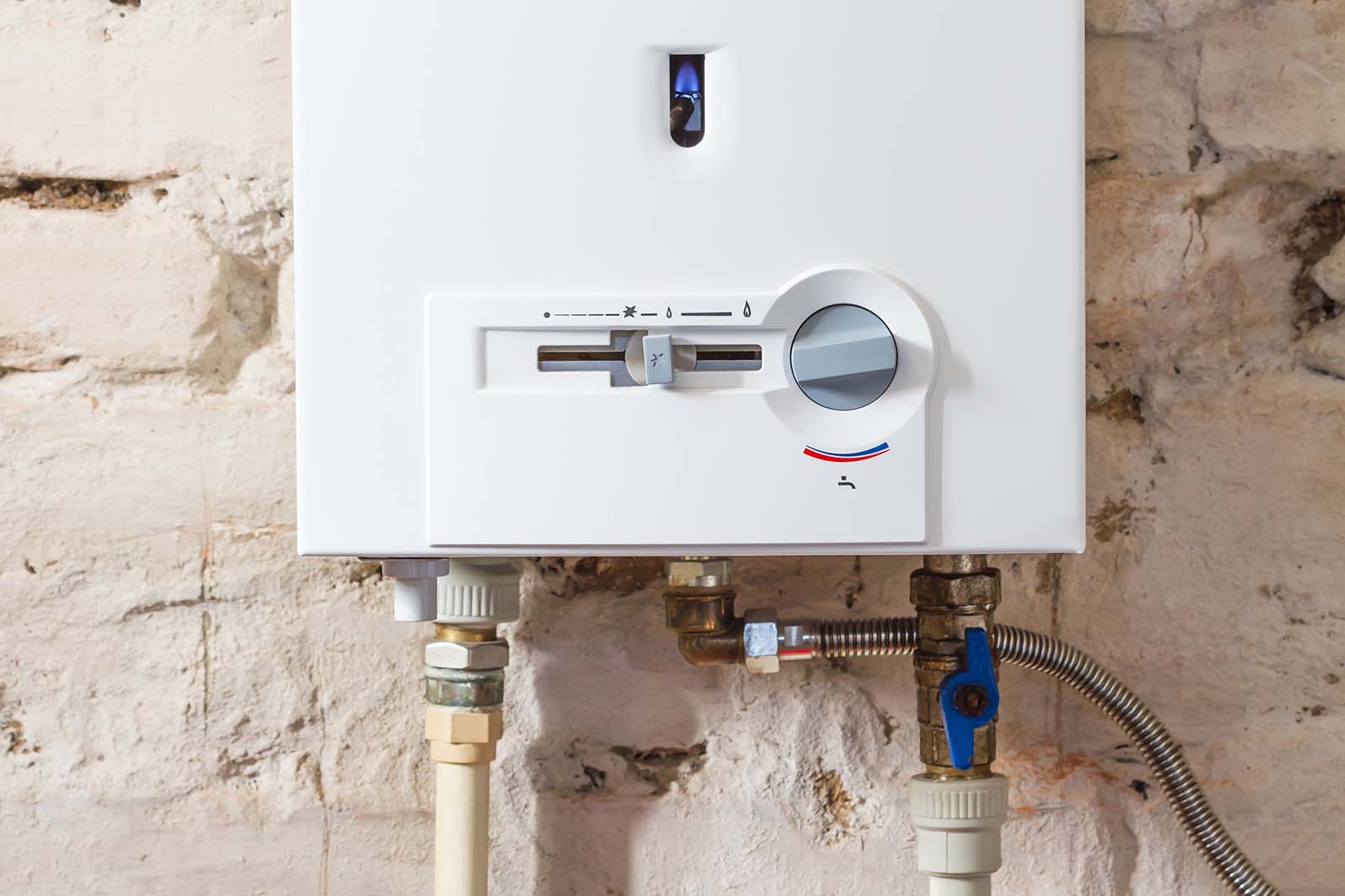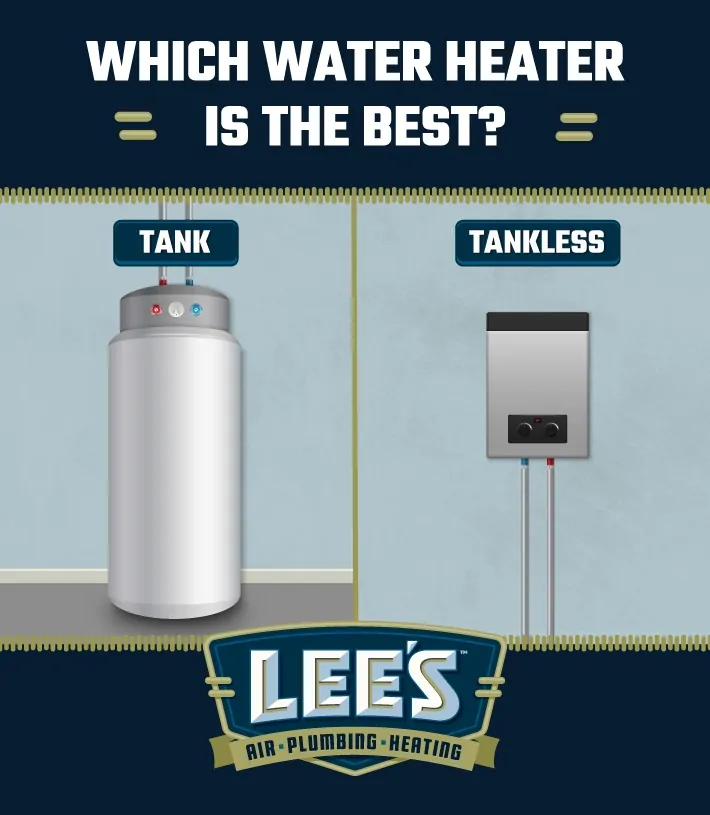Tankless vs Traditional Tank Water Heaters: What You Need to Know
Wiki Article
The Ultimate Overview to Choosing the Right Water Heating Unit: Demystifying Tankless and Storage Tank Options for Pipes Success
Are you struggling to select the right water heating unit for your plumbing requires? In this best guide, we will certainly demystify the alternatives of tankless and storage tank water heating systems, assisting you make a notified choice (Tankless vs. Traditional Tank Water Heaters).Tankless Vs. Container: Recognizing the Basics
When thinking about water heating systems, it's vital to understand the basic distinctions in between tankless and tank alternatives. Tankless water heating units, also called on-demand hot water heater, offer warm water as required, without using a tank. These devices heat up the water directly as it moves via the device, causing unlimited warm water supply. On the other hand, container water heating systems shop and warm a specific quantity of water in a container, prepared for use whenever required.One key advantage of tankless water heaters is their space-saving layout. Additionally, tankless water heaters are more energy-efficient than traditional tank heaters due to the fact that they just heat water when it is required.
Nevertheless, tankless water heating units might have limitations in terms of the quantity of hot water they can provide concurrently. If you have a huge home with multiple warm water needs, such as running a shower and dishwashing machine at the same time, a tankless unit may struggle to keep up. In this situation, a tank water heater with its bigger storage space ability might be a far better option.
Inevitably, the selection between tankless and storage tank hot water heater depends on your certain needs and preferences. Tankless vs. Traditional Tank Water Heaters. Consider variables such as space schedule, hot water needs, and power effectiveness to make a notified decision
Power Efficiency: Contrasting Tankless and Storage Tank Options
To determine which hot water heater alternative is more energy effective, compare the energy usage of tankless and container water heating units. Tankless water heating units, also referred to as on-demand water heating units, supply warm water just when it is required. This suggests that they do not constantly warm and shop water like conventional tank heating systems. As an outcome, tankless hot water heater can be extra power effective since they eliminate standby warmth loss. Standby heat loss happens when heat leaves from the tank and calls for the water heater to continually reheat the water to keep the wanted temperature. On the various other hand, container water heating systems store and continuously heat a huge volume of water, even when it is not being utilized. This consistent heating results in power waste and greater energy costs. By switching to a tankless hot water heater, you can potentially decrease your power usage and save money over time. It is necessary to note that the energy effectiveness of both tankless and storage tank hot water heater can differ relying on elements such as the dimension of the unit, the quantity of hot water required, and the environment in which you live.Price Factors To Consider: Assessing the Initial Financial Investment and Long-Term Financial Savings
To analyze the initial investment and long-lasting cost savings of different water heating unit alternatives, take into consideration the price elements associated with both tankless and tank water heating systems. When it comes to the first financial investment, tankless water heating units have a tendency to have a greater ahead of time expense compared to tank water heating units.Nonetheless, when looking at long-lasting cost savings, tankless water heating units frequently come out on top. This is since they are extra energy-efficient, only heating water when it is needed, instead than constantly keeping a large tank of water hot. Therefore, tankless water heating units can assist reduce power intake and lower energy expenses with time. In addition, tankless devices have a longer life expectancy compared to storage tank water heating systems, which indicates less replacements and upkeep prices over time.
It is essential to note that the expense factors to consider will differ depending on factors such as Clicking Here the dimension of your home, warm water usage, and local energy prices. It is advised to speak with an expert plumbing to determine the most economical choice for your details demands and budget.

Area Demands: Examining the Dimension and Installation Variables
When it comes to room, tankless water heaters are typically a lot more portable than traditional container water heating units. As an outcome, tankless water heaters can be placed on wall surfaces, inside closets, or in other limited rooms, making them a great check here choice for those with minimal space in their homes.On the other hand, storage tank water heating units require a substantial amount of area to fit the dimension of the storage tank. The size of the storage tank depends on the capacity of the water heating system, which is gauged in gallons.
In addition to the physical space needs, you should additionally take into consideration the installation factors. Tankless hot water heater might call for alterations to your plumbing system, such as upgrading the gas line or adding extra electric circuits. Storage tank water heating units, on the other hand, may require a bigger space for installment and may need extra air flow to avoid getting too hot.
Efficiency and Maintenance: Analyzing Toughness and Solution Needs
When it comes to efficiency and upkeep, it is important to examine the toughness and solution requirements of both tankless and container water heating systems. These devices have a longer lifespan contrasted to typical container water heating systems, which normally last around 10-15 years.In regards to solution needs, tankless hot water heater call for less upkeep compared to storage tank hot water heater. Tankless devices do not have a storage space tank, which implies there is no risk of storage tank leak or deterioration. They likewise do not call for routine flushing like container hot water heater do. It is still essential to schedule yearly upkeep for tankless water heaters to guarantee ideal efficiency and protect against any possible concerns. This maintenance usually entails descaling the warm exchanger and inspecting for any indicators of wear or damages.
On the various other hand, storage tank water heating units need more upkeep. The storage container requires to be flushed routinely to get rid of sediment buildup, which can influence its performance and lifespan. In addition, storage tanks may create leakages in time, particularly Our site if they are not effectively kept or if they are revealed to harsh water conditions. Normal inspection and upkeep are vital to maintain tank hot water heater running efficiently and to avoid any kind of pricey repair services or replacements.
Verdict

Tankless water heating systems, also understood as on-demand water heating systems, provide warm water as needed, without the usage of a storage tank. In addition, tankless water heaters are much more energy-efficient than traditional storage tank heating systems due to the fact that they just heat water when it is needed.To figure out which water heater alternative is much more power efficient, contrast the power usage of tankless and tank water heaters. Tankless water heaters, additionally known as on-demand water heating units, offer hot water only when it is needed. When it comes to the initial investment, tankless water heating systems tend to have a higher in advance expense contrasted to container water heating units.
Report this wiki page